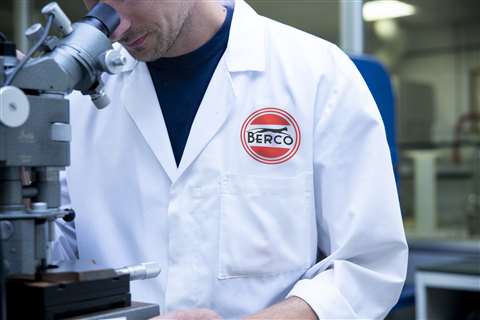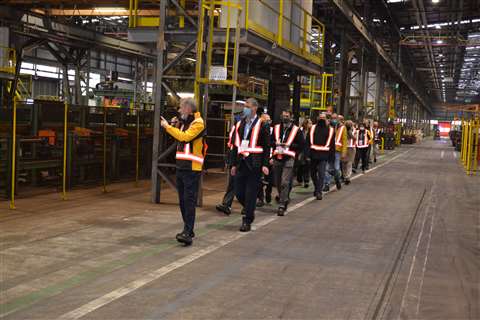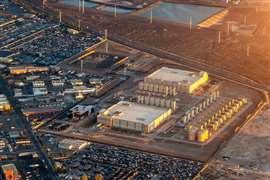Berco modernises operations, adds online aftermarket
23 November 2021
Italy-based Berco, a manufacturer of undercarriages for heavy machinery, has celebrated the opening of its new R&D facility at the company’s premises in Copparo.
Representing a €1 million investment, the new R&D department covers 2000 m2 and houses new manufacturing tools, laboratory, 3D printing technology and presses.
Francesco Grenzi, executive director of R&D at Berco, said; “We are now working with generation 4.0 machines which allow us to store all of the data we collect, which can then be used for future analysis. This is vital for our continuous improvement.”
The R&D team employs 23 researchers divided into two subgroups: metallurgical laboratory and product engineering and the group is set to be expanded.
 Berco inaugurated new R&D center at the company’s Italian headquarter in Copparo.
Berco inaugurated new R&D center at the company’s Italian headquarter in Copparo.
The new department includes a benchmark room and a revamped roller test bench, equipped with new software and hardware control systems that achieve greater flexibility in defining load protocols.
Updated rubber testing machines perform cryostatic tests which determine performance at very low temperatures; rubbers are key components for Berco, used in the sealing of rollers, chains, idlers and track adjusters. They need to perform even at temperatures down to -50°C.
Also included is the latest 3D printing technology and new 10 tonne and 100 tonne presses for fatigue and static testing of mechanical components.
eCommerce platform
At the same time, Berco has launched an e-commerce platform for aftermarket products. According to the company’s CEO, Piero Bruno, the platform represents a fundamental step in offering customers digital services with high added value.
“Berco is in the process of digital transformation regarding products, services as well as production. It will make us more agile, more flexible, more in line with the needs of today’s global market,” he said. “The launch of the new online shop will provide an excellent customer journey for our dealers all over the world.”
Five thousand items from all three Berco product lines will be available for order by customers on the digital platform. Clients will also be able to control the entire ordering process and related follow-ups, very much like what global consumers experience nowadays with online shopping.
Reduced environmental impact
The facility is also involved in a large project to reduce its environmental impact as part of a three-year lean manufacturing plan which aims to reduce CO2 emissions by 2,500 tonnes per year. Measures include a modular heating system to cut gas consumption by 13% in the first year. The new system replaces the single 20 MW thermal power plant in Copparo with a series of thermal energy sources.
An annual reduction of about three million kW/h of electricity through various steps is in the plans too. Berco’s COO Mario Andaloni explained that such plan for a facility the size of Copparo (about 500,000 m2 of heavy machining operations, including forging) would normally take several years. To be able to complete such a huge transformation in three years is a massive undertaking.
The first step of the plan tackled reducing the energy consumption of all the machinery present in the Copparo production lines. The actual use of each machine was analysed and old, energy-intensive machines were dismantled and, where necessary, replaced with new equipment.
 A massive facility: the Berco plant in Copparo, Italy, is a 500.000 m2 citadel for the manufacturing of undercarriage components for heavy construction machines
A massive facility: the Berco plant in Copparo, Italy, is a 500.000 m2 citadel for the manufacturing of undercarriage components for heavy construction machines
One other area targeted by the optimisation process is the decentralisation of compressed air and electric power; in fact the Copparo plant uses compressed air in various production phases - a particularly energy-intensive process in terms of kW/h.
The compressed air distribution system is being decentralised with compressors located in the various production areas. The company estimates annual savings of around 2.5% compared to the average consumption of the last three years.
The distribution of electrical power is being decentralised as well, while the current water consumption within the plant (about 300,000 m3 per year, taken from the nearby Po river) is being reduced through the optimisitation of the cooling circuits again using a decentralized approach.




